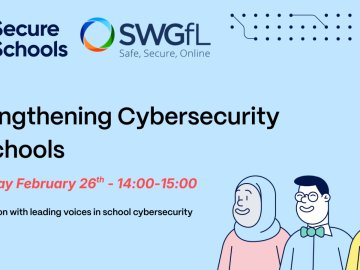On 17th September 2025, SWGfL hosted the NCII Summit at Google’s UK headquarters in London, bringing together policymakers, regulators, tech leaders, law enforcement, and survivor advocates for informed discussion around how to improve protections against one of the most pressing online harms. Building on March’s New York summit, the London gathering focused around how new laws, regulations, and technologies can be translated into real-world change for survivors of non-consensual intimate image abuse (NCII).
Recent months have seen unprecedented momentum: the U.S. Take It Down Act signed into law, Ofcom’s implementation of the Online Safety Act, and the UN reaffirming NCII as an urgent global crime prevention priority. Against this backdrop, speakers emphasised that the moment to move from dialogue to action is now.
Global Alignment Towards Combatting NCII
The day began with opening remarks from UK Safeguarding Minister Jess Phillips who joined the event virtually, followed by Baroness Charlotte Owen, . Each underlined the need for coordinated international responses towards NCII as well as highlighting their own work around parliamentary calls for stronger legislative protections.
SWGfL presented the latest data from StopNCII.org (1.8 million images hashed and actively prevented the sharing of over 32,000 NCII), which continues to expand its global adoption. We also announced that X has joined StopNCII.org as an industry partner furthering protections online by allowing adults to hash their images from their own device and prevent sharing across X.
Perhaps the most profound contribution of the day was the experience of a survivor of intimate image abuse, describing the long-lasting trauma and barriers they faced in seeking justice. Her testimony reminded attendees of the very real human impact behind the policy frameworks and why this harm is such a devastating form of abuse.
Panel 1: From Commitments to Enforcement
The first panel, moderated by our own Cailin Crockett, explored how laws like the US Take It Down Act, the UN Cybercrime Convention, and Ofcom’s new obligations under the Online Safety Act are being enforced. Contributions from Ofcom, UNODC, the U.S. Senate, and Pakistan’s Digital Rights Foundation underscored that while legislation now exists across multiple jurisdictions, enforcement remains uneven.
Discussions focused on:
- Cross-border challenges: NCII content rarely stays within national boundaries, making cooperation between law enforcement and regulators vital.
- Proliferation of synthetic sexual content (“deepfake”): panellists warned of the urgent need to address synthetic intimate images, which are increasingly weaponised.
- Accountability gaps: survivors continue to face disbelief or blame when reporting incidents, highlighting the need for better frontline training.
The discussion noted that success cannot simply be measured in prosecutions, but in whether survivors feel heard, supported, and empowered
Panel 2: Platforms and Safety by Design
Moderated by SWGfL Trustee Karuna Nain, the second panel brought together Google, Meta, TikTok and Resolver to discuss platform responsibilities. Here, the focus was on safety by design and collective industry action.
The panel discussed:
- Perpetrator-centric approaches: Looking beyond individual pieces of content to map offender networks, track behaviours, and anticipate risks.
- Signal and intelligence sharing: Drawing parallels with counter-terrorism and child protection, speakers stressed the importance of shared hash databases and cross-platform coordination.
- Removing financial incentives: Calls to demonetise apps and services that enable or profit from NCII abuse.
- Survivor-informed product design: Embedding survivor expertise into research and implemented safety features.
As part of the panel, we announced that we are extending the fight against NCII by developing a new partnership with Google Search. We anticipate that over the next few months, Search will begin using StopNCII’ s hashes to proactively identify and remove content that violates their policies against NCII.
The panel also heard calls from NGOs to ensure survivors are paid for their advocacy and expertise, rather than continually asked to share their stories for free: “This is work. If you would pay a consultant for their expertise, you should pay survivors too.”
Panel 3: Survivor Voice and Support Infrastructure
The final panel, moderated by SWGfL’s Emily Harman, centred on survivors and frontline organisations. Speakers included our own Revenge Porn Helpline, Glitch, StopFisha, NPCC, and the FCDO, who all underscored the urgent need for victim-led systems.
The panel discussed:
- Holistic support: Survivors often face multiple, overlapping harms such as stalking or domestic abuse. Services must work together to provide joined-up signposting, rather than overwhelming victims with fragmented referrals.
- Training and culture change in policing: Speakers highlighted the urgent need for police to adopt victim-led approaches, improve communication, and abandon outdated performance metrics that overlook survivor priorities.
- Barriers to trust: Survivors repeatedly cited stigma, shame, and institutional neglect as reasons for not reporting abuse, with systemic inequities hitting marginalised groups particularly hard.
- Ethical survivor participation: Several speakers warned against tokenistic use of survivor stories. Instead, survivors must be given power, agency, and resources (including payment for their expertise).
Sophie Mortimer of the Revenge Porn Helpline described the daily reality: “I read every case that comes through. The common threads survivors share have directly fuelled initiatives like StopNCII.org. The harm is ongoing and survivors’ voices must guide our response.”
From Principles to Protection
The summit concluded with reflections from SWGfL, where we emphasised that the momentum generated in London must be channelled into tangible action. A central theme was the need to expand adoption of preventative tools such as StopNCII.org. Alongside this, we announced a new project which will take our work across borders to collaboratively respond effectively to the global circulation of images and the rise of synthetic content, building the technical capacity and shared standards necessary to stay ahead of offenders.
Equally, participants reinforced the importance of platform accountability; legislation and regulatory frameworks will only be meaningful if implemented consistently and shaped by the lived realities of survivors. This led to a final call to embed survivor participation ethically, ensuring their voices influence product design and policy while protecting them from re-victimisation.
A Shared, Global Responsibility
The NCII Summit London made one thing clear: legislation, tools, and partnerships are advancing, but they only matter if they deliver tangible protection for survivors. Progress requires governments, platforms, and NGOs to act together, and for survivors to lead the way.
For SWGfL, this summit was not just about convening dialogue, but about ensuring the commitments made in London translate into measurable long-lasting protections.






